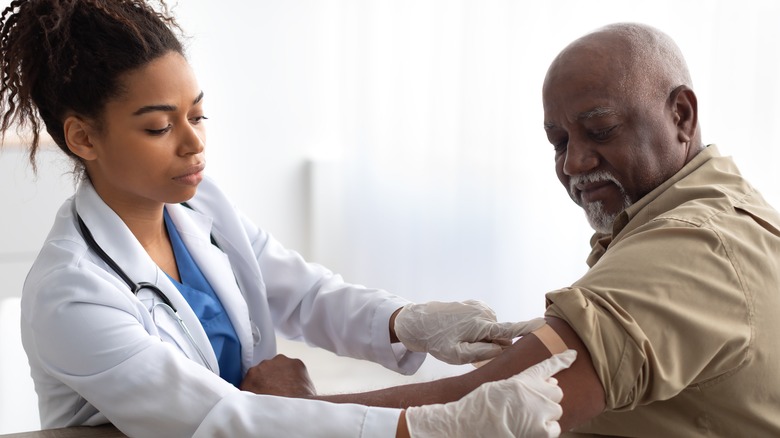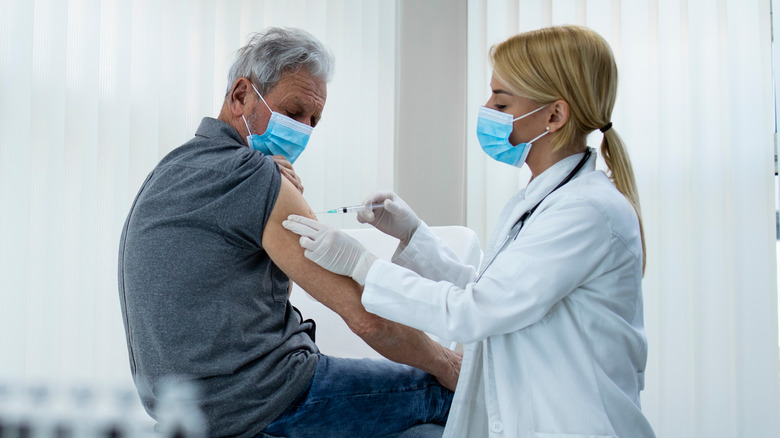Largest Study To Date Suggests Vaccine Lowers Post-COVID Heart Attack And Stroke Risk
Although COVID-19 can be harmful to anyone, the SARS-CoV-2 virus is extremely dangerous to older individuals and those with underlying health conditions, including cardiovascular disease. According to the National Institute on Aging, individuals over the age of 65 are more vulnerable to having a heart attack or stroke. Fatty deposits can accumulate in the walls of the arteries as we age, obstructing blood flow to the rest of the body and increasing the risk of heart disease and heart attacks.
During a stroke, brain cells are deprived of oxygen and cell death occurs due to a change in blood flow to the brain. Ischemic strokes occur when blood is unable to travel throughout the brain because of a blood clot (per National Institute on Aging). Blood can also leak into and around the brain because of a ruptured blood vessel during a hemorrhagic stroke.
Some individuals who have had COVID-19 could experience problems with their cardiovascular health as they are recovering from the virus. For example, inflammation from the virus can have adverse effects on heart health by depriving the heart of oxygen, as explained by Wendy Post, M.D. and Nisha Gilotra, M.D., two cardiologists at Johns Hopkins Medicine. Additionally, some research has observed an increase in the risk of stroke following SARS-CoV-2 infection, according to Harvard Health Publishing.
People may wonder whether receiving the vaccine reduces the risk of having a heart attack or stroke following infection. A new study provides some insight into this question.
COVID vaccine lowers the risk of heart attack and stroke?
In a recent study published in the Journal of the American College of Cardiology, researchers wanted to better understand the connection between receiving the COVID-19 vaccine and the prevalence of major adverse cardiac events (MACEs), such as ischemic heart disease and stroke. The study analyzed data from the National COVID Cohort Collaborative (N3C) and included 1,934,294 patients between the ages of 18 and 90. The patients included in the study had contracted the SARS-CoV-2 virus between March 1st, 2020 and February 1st, 2022. They had either been fully vaccinated, partially vaccinated, or not vaccinated at all, and were evaluated 180 days after the initial infection.
Cases of MACEs were observed in 12,733 patients who were unvaccinated, 160 patients who were partially vaccinated, and 1,055 patients who were fully vaccinated. Fully vaccinated patients had a 59% decreased risk of experiencing MACEs following infection than those who were unvaccinated, according to a press release on the study (per Mount Sinai Health System). After infection, patients who were partially vaccinated also appeared to have a reduced risk of MACEs.
"[We] found that, particularly among those with comorbidities, such as previous MACE, type 2 diabetes, high cholesterol, liver disease, and obesity, there is an association with a lower risk of complications," senior author of the study, Girish N. Nadkarni, M.D., reported in the press release. However, he points out that a causal connection can't be drawn from the study's findings.


